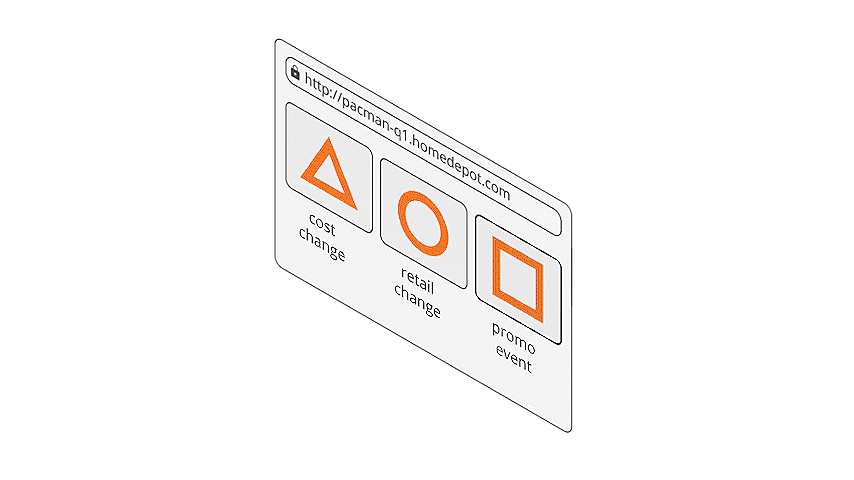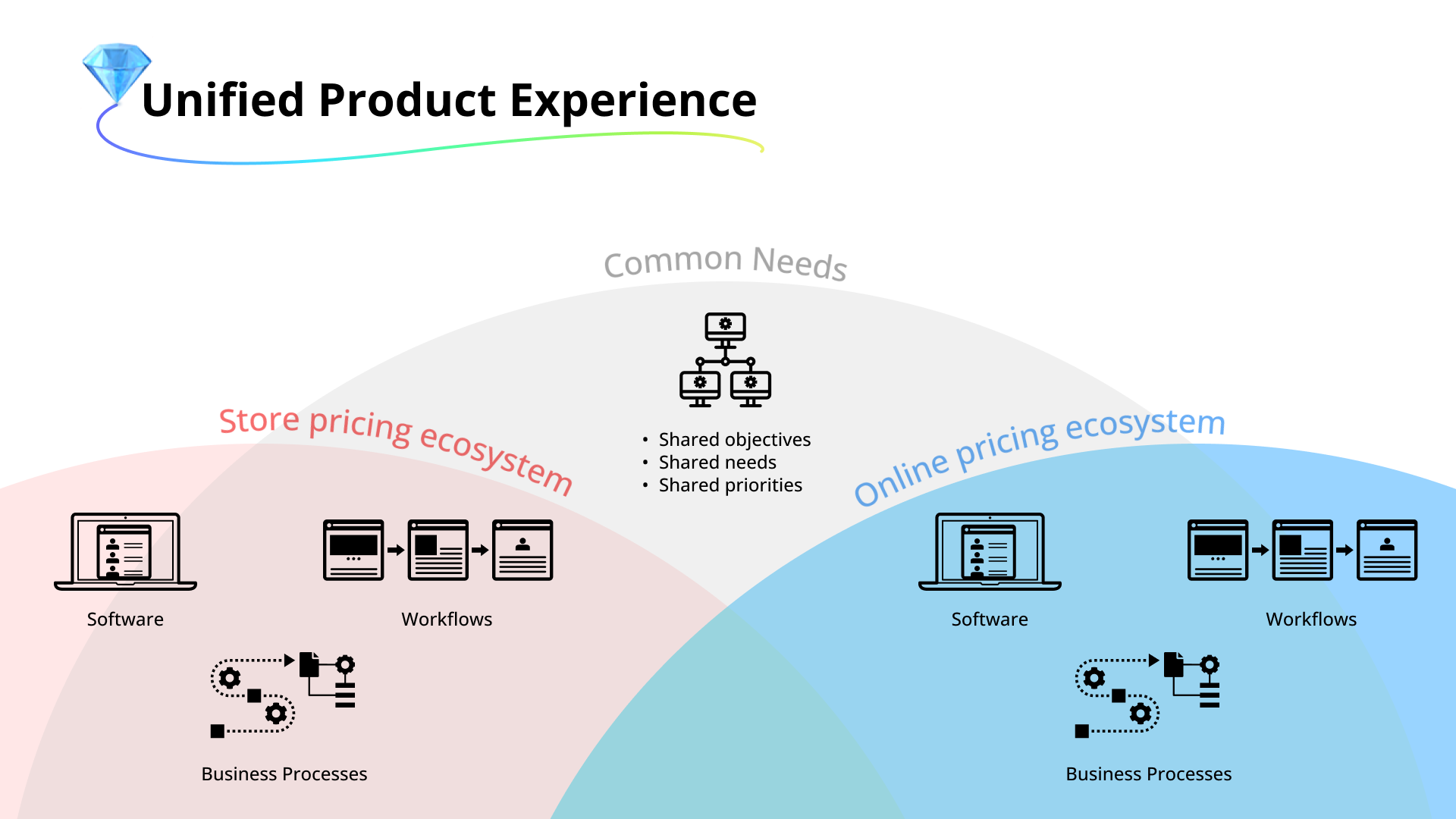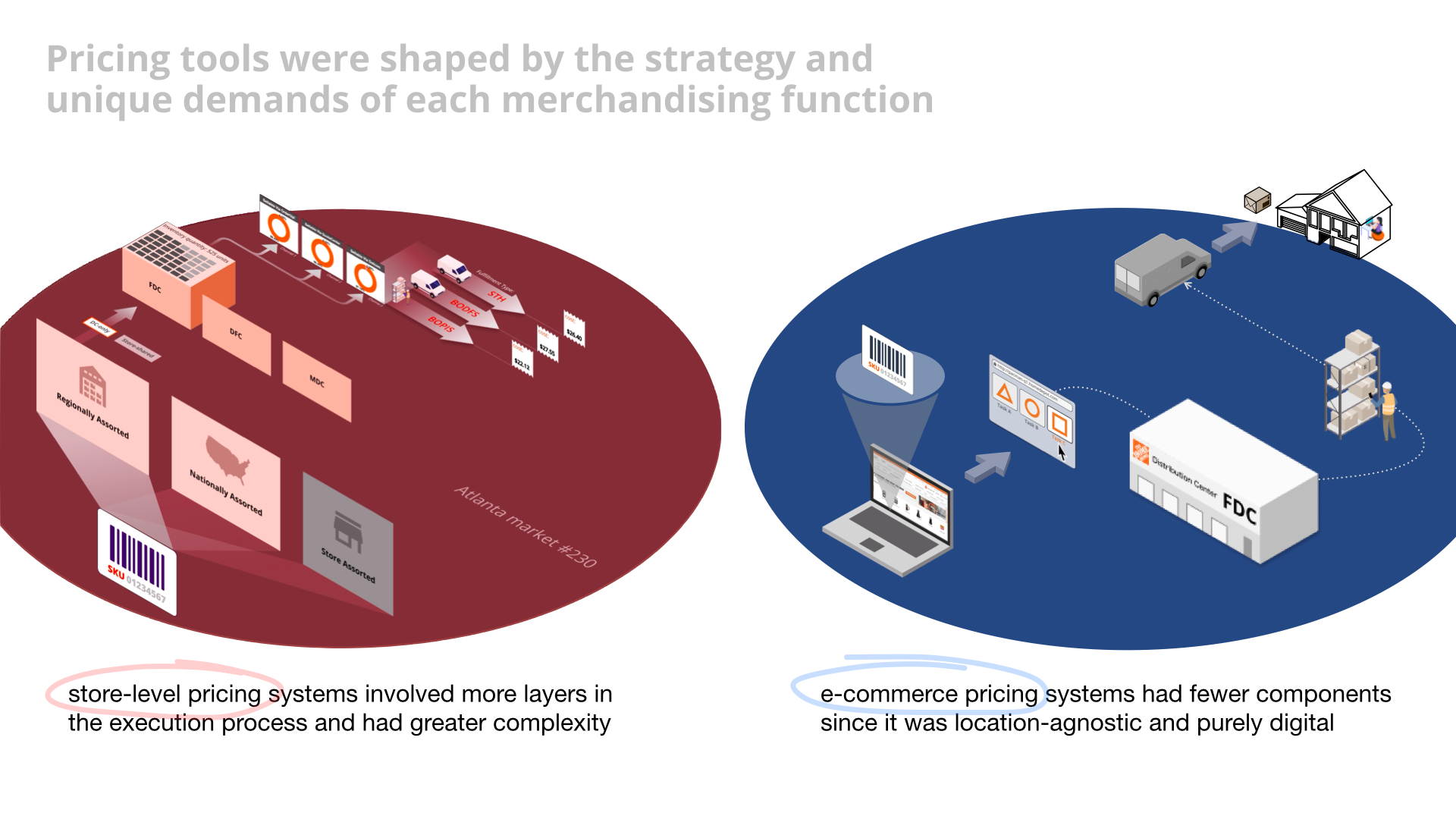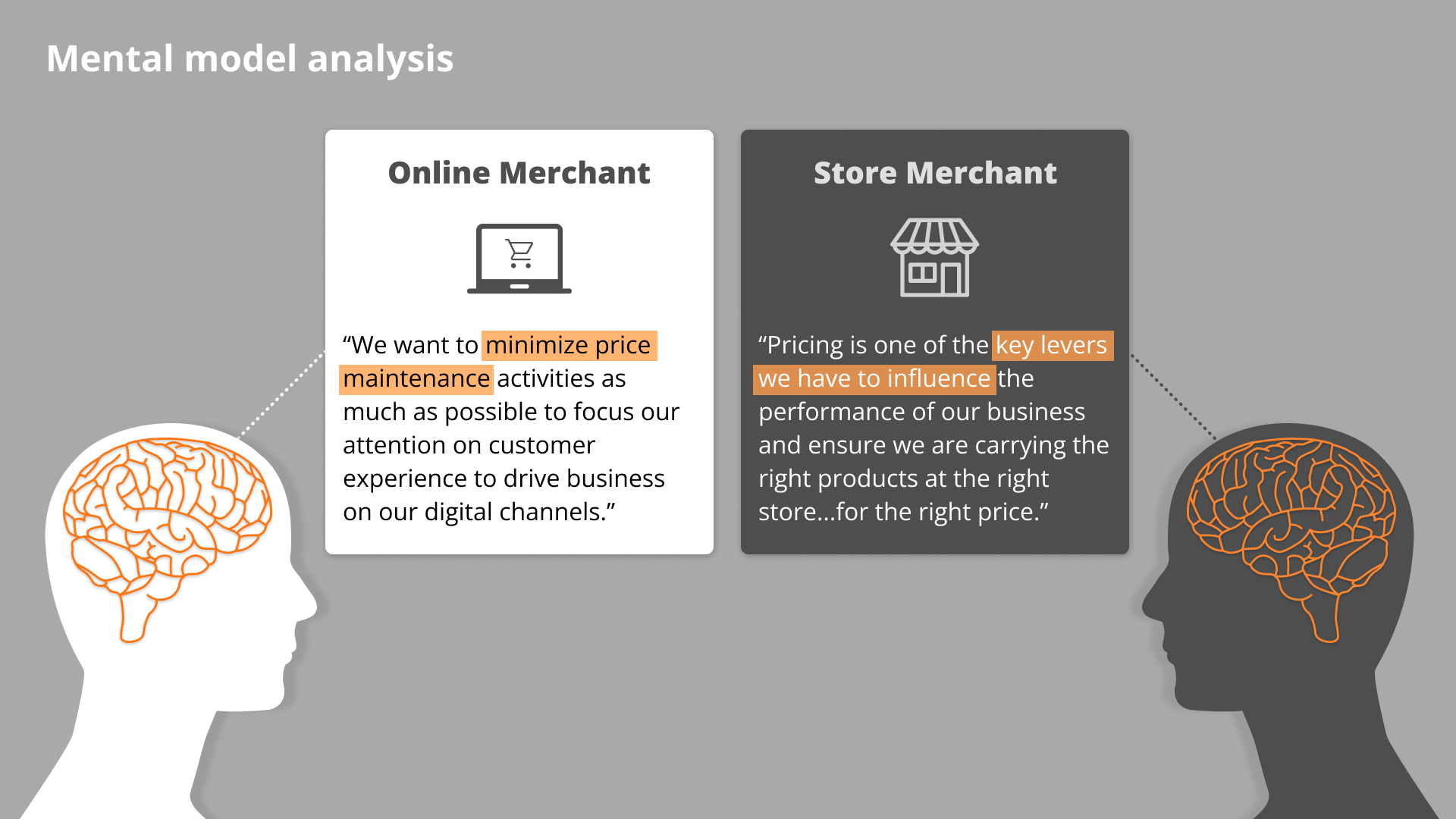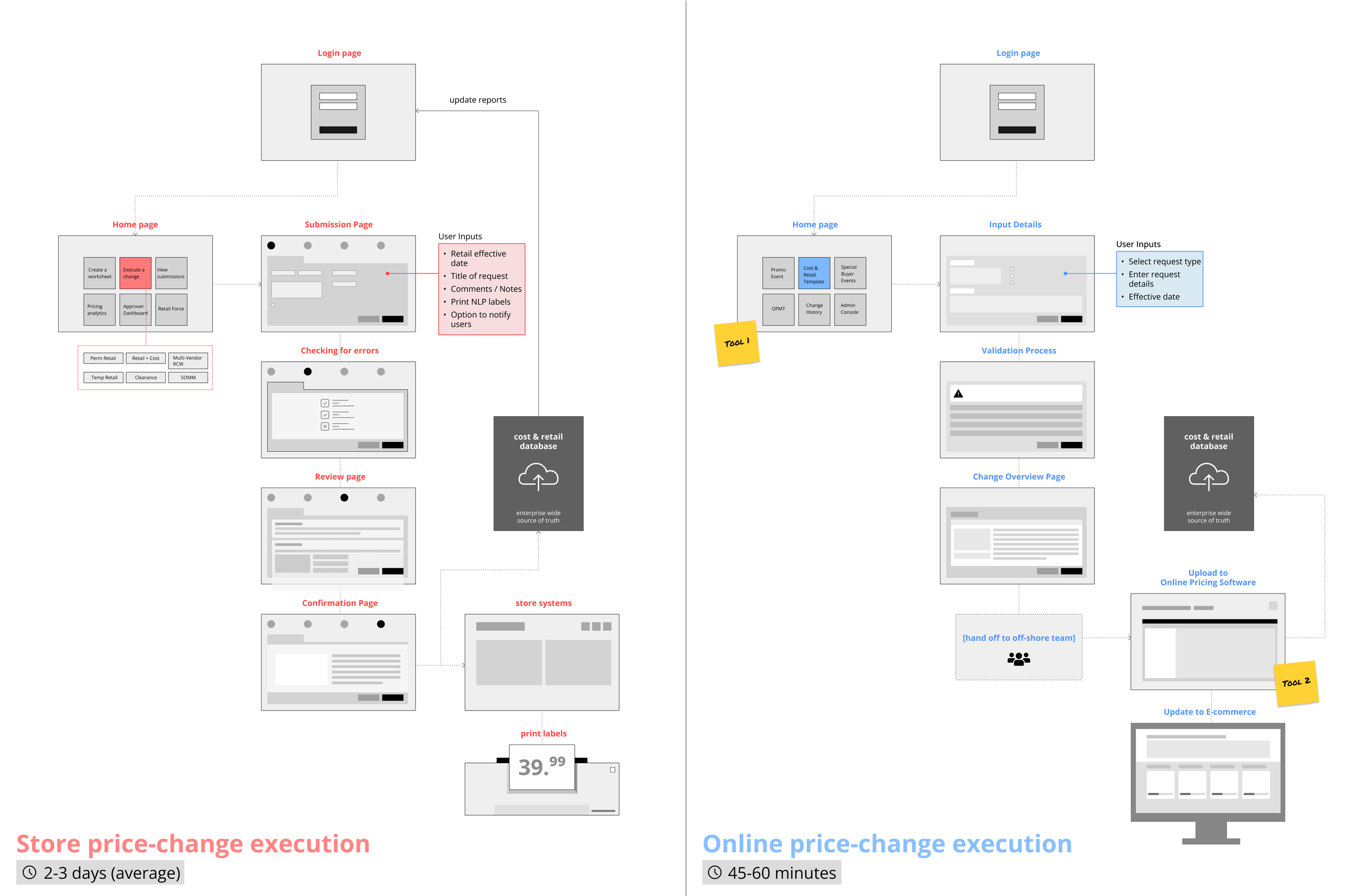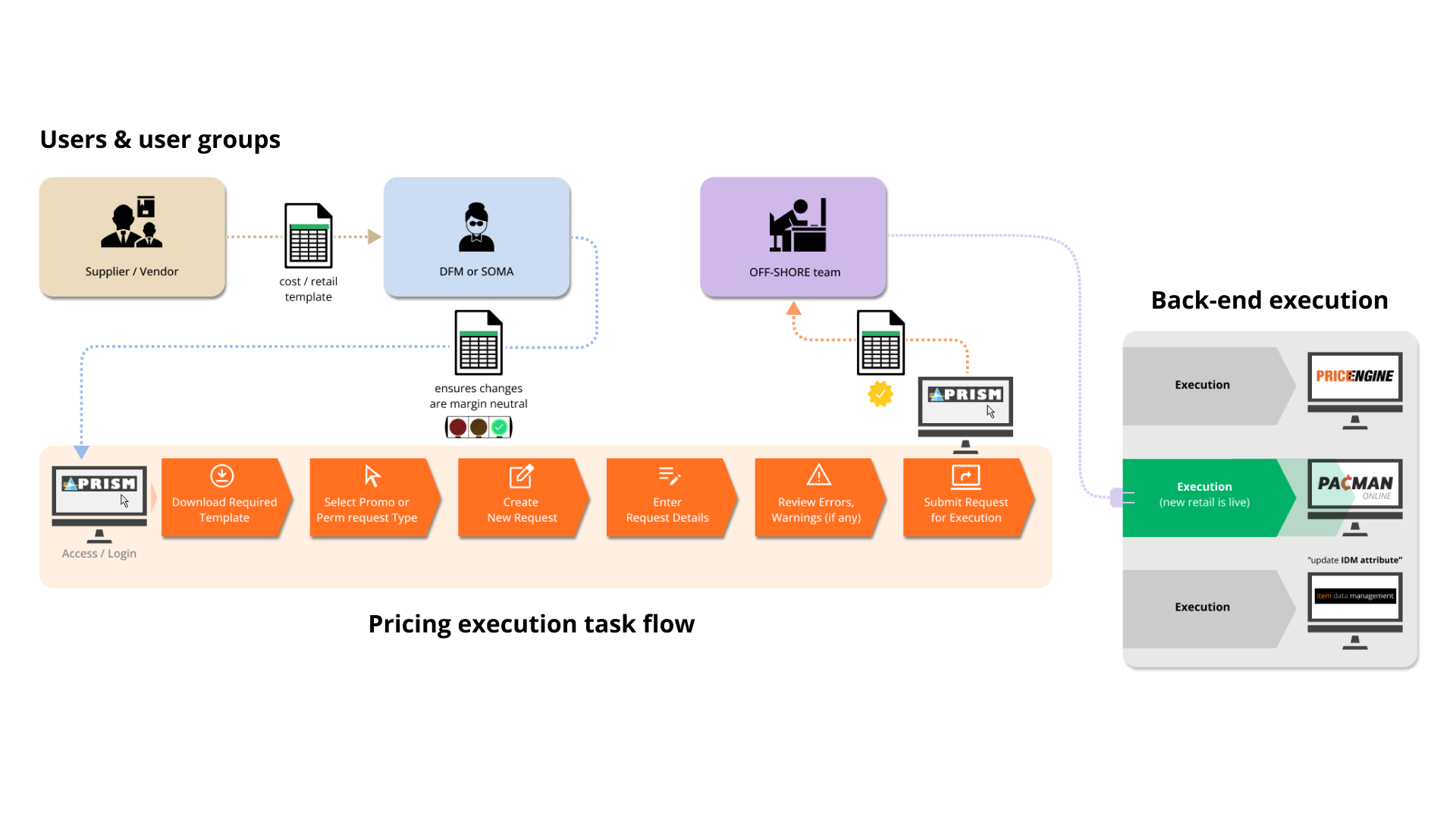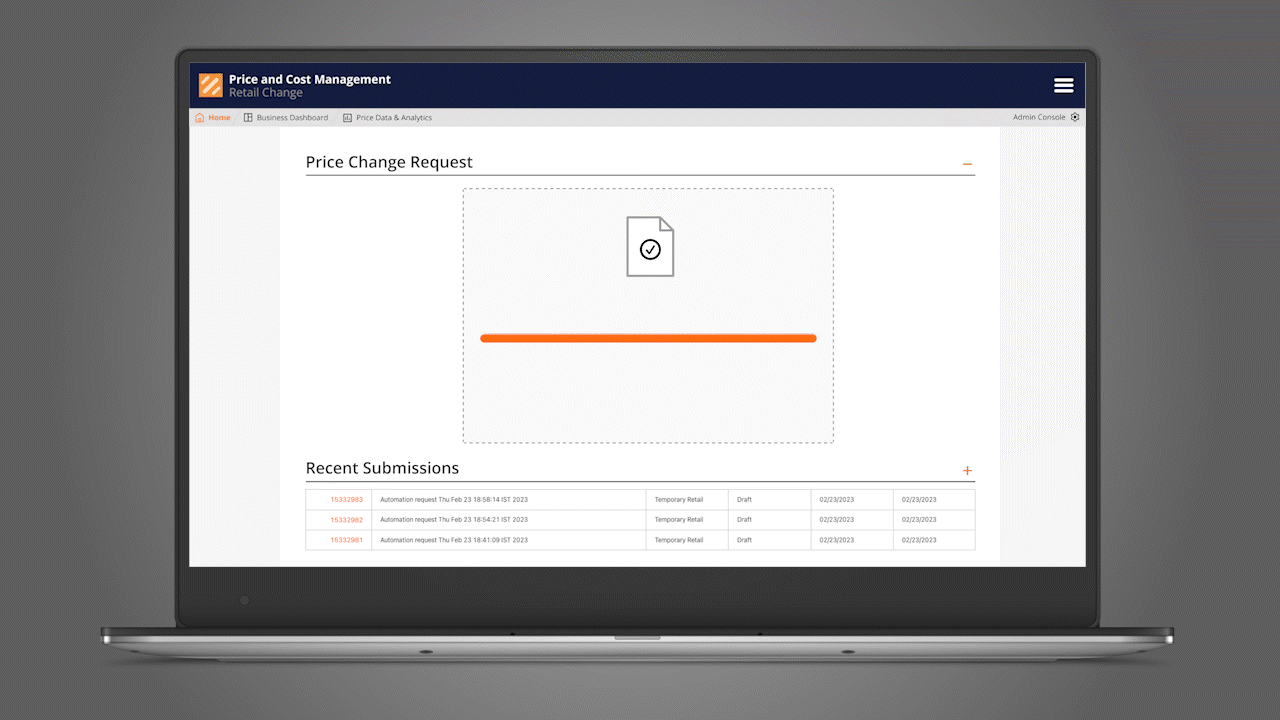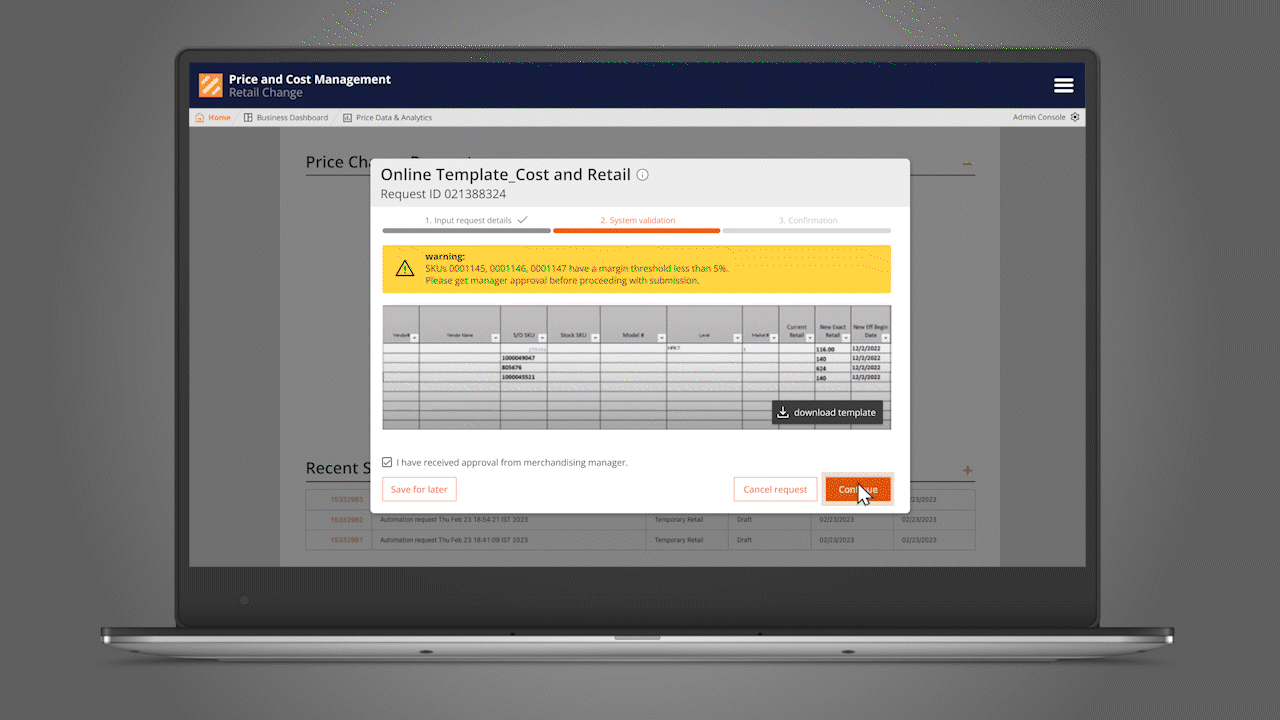The need for an integrated approach
A textbook example of “legacy” processes and systems being challenged by the demands of modern, interconnected retail.
Having two separate ecosystems for online and store price maintenance was once a manageable approach. Given the expansion of the online merchandising business, the toolchain supporting it had also grown with it.
Our product team was challenged to address this by conceptualizing a new approach that could satisfy both online and store merchandising managers while balancing their unique pricing-related use cases.
Business Pain Points
📌 Support teams to troubleshoot pricing errors $$$
📌 IT specialists designated for each business group
📌 Onboarding & training for each product ecosystem
📌 Cloud, storage, security systems (operational costs)
How I Helped
✅ Spearheaded strategic future roadmap initiatives
✅ Partnered with engineering team to introduce automation component with design concept (incremental innovation)
✅ Introduced new interaction logic to simplify user’s workflow to reduce time on task
Design Strategy High Level
Overlapping pricing systems resulted in selling issues..
Devil in the details (research findings)
Wireframes to document both experiences
Online pricing execution (detailed view)
Information architecture redesign
🔘 prior to our re-design effort, pricing software for store merchant managers was fragmented into many different flow paths based on their department’s specific needs
🔘 simplifying the experience required abstraction; this meant eliminating a layer of the user’s decision-making process: the needs to select a price change template type
🔘 introducing a contextual model also reduced cognitive load for our users since the system would not only recognize the type of price change request, but also the specific parameters involved with that request
🔶 the goal was to make the process EASIER and SIMPLER while ensuring accuracy and to prevent pricing errors (generated either from user or software)
Design Proposal for Consolidated Experience
Drag & Drop functionality —> Automated Task Identification —> Contextual Modal UI —> DONE

